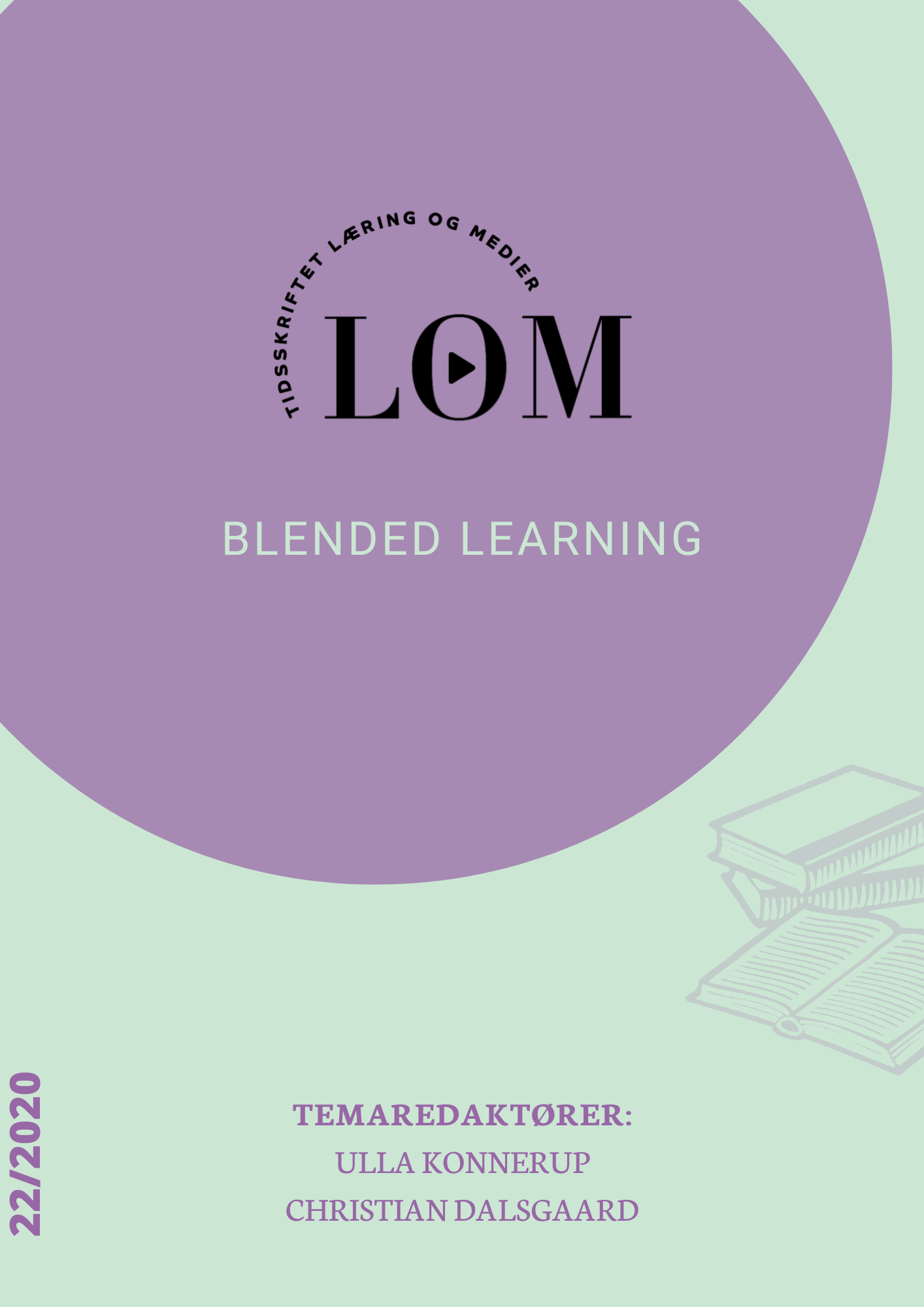Teknologiforståelse i skolens praksis
Datalogisk design til autentisk problemløsning
DOI:
https://doi.org/10.7146/lom.v12i22.115613Keywords:
teknologiforståelse, datalogisk tænkning, designtænkning, datalogisk design, fagdidaktik, folkeskoleAbstract
This article is a didactic contribution to the subject area known as “technology comprehension” in Danish K-9 schools. In this context, technology comprehension is regarded as a discipline that involves developing competences in the fields of computational thinking, design thinking, and critical thinking regarding the use of computer science in society.
The article communicates the results of an experiment conducted in a Danish eighth-grade class. The purpose was to examine a way of teaching computational thinking and design thinking by developing a computational design to solve an authentic problem, thereby identifying didactic opportunities and challenges.
The experiment was based on two primary hypotheses: We expected the students would dislike the idea of changing their designs after user feedback, and we thought they would have a narrow view of computer science, regarding it as the equivalent of programming. These hypotheses were partially confirmed. However, other opportunities and challenges were also identified, including changed conceptions of computer science and new opportunities for success within the field, success with creative breaks and varied ways of working, the positive importance of authenticity with regard to the students’ understanding, and the wish for a greater degree of freedom than they were granted in this project.
Downloads
References
Barab, S. & Squire, K. (2004). Design-Based Research: Putting a Stake in the Ground. The Journal of the Learning Sciences, 13(1): 1-14. https://doi.org/10.1207/s15327809jls1301_1
Caeli, E. N. (forthcoming). Ph.d.-afhandling.
Caeli, E. N. & Bundsgaard, J. (2020). Teknologikritik i skolen – et demokratisk perspektiv på teknologiforståelse. I: Haas, C. og Matthiesen, C. (red.). Fagdidaktik og demokrati. Samfundslitteratur.
Cross, N. (2011). Design Thinking: Understanding how designers think and work. Bloomsbury.
Denning, P. J. (2017). Computational Design. ACM Ubiquity. Volume 2017, August: 1-9. https://dl.acm.org/doi/10.1145/3132087
EMU (2019). Formålet for forsøgsfaget teknologiforståelse. https://www.emu.dk/grundskole/forsogsfag-teknologiforstaelse/formal. Undervisningsministeriet.
Hattie, J. & Timperley, H. (2007). The Power of Feedback. Review of Educational Research, 77(1). https://doi.org/10.3102/003465430298487
Naur, P. (1965). The Place of Programming in a World of Problems, Tools, and People. Proc. IFIP Congress 65: 165-199.
Naur, P. (1970). Planer og ideer for datalogisk institut ved Københavns Universitet. Studentlitteratur.
Katapult/TEACH (2013). Værktøjskassen: Model for designtænkning. Projektet Next Generation. Københavns Universitet. https://innovation.sites.ku.dk/model/design-thinking/
Klafki, W. (2001). Dannelsesteori og didaktik – nye studier. Klim.
Smith, R. C.; Iversen, O. S.; & Veerasawmy, R. (2016). Impediments for Digital Fabrication in Education: A study of teachers’ role in digital fabrication. International Journal of Digital Literacy and Digital Competence, Vol. 7(4). https://doi.org/10.4018/IJDLDC.2016010103
Tabel, O.; Jensen, J.; Dybdal, M.; & Bjørn, P. (2017). Coding as a social and tangible activity. Interactions, 24(6): 70-73. https://doi.org/10.1145/3137099
Downloads
Published
How to Cite
Issue
Section
License

Articles published in the Journal of Learning and Media are licensed under a Creative Commons Attribution-NonCommercial-NoDerivatives 3.0 Unported Licens.
Authors retain copyright and grant the journal right of first publication; simultaneously articles are licensend under the Creative Commons Attribution license: Attribution-NonCommercial-NoDerviatives (by-nc-nd). Read about this license at https://creativecommons.org/licenses/by-nc-nd/3.0/
---
At LOM.dk, you will also find articles from the discontinued Journal for the Continuing and Further Education of the Danish Universities (UNEV). Note that special rules apply to UNEV articles:
It is the authors and any other copyright holder who have the copyright of articles published under the auspices of UNEV, and access to the articles is contingent on users acknowledging and complying with the associated legal guidelines:
- Users may download and print one copy of any UNEV publication for private studies or research.
- The redistribution of articles or the use of these for revenue-funded activities or commercial purposes are not allowed.
- It is not allowed to distribute the URLs of UNEV articles.


